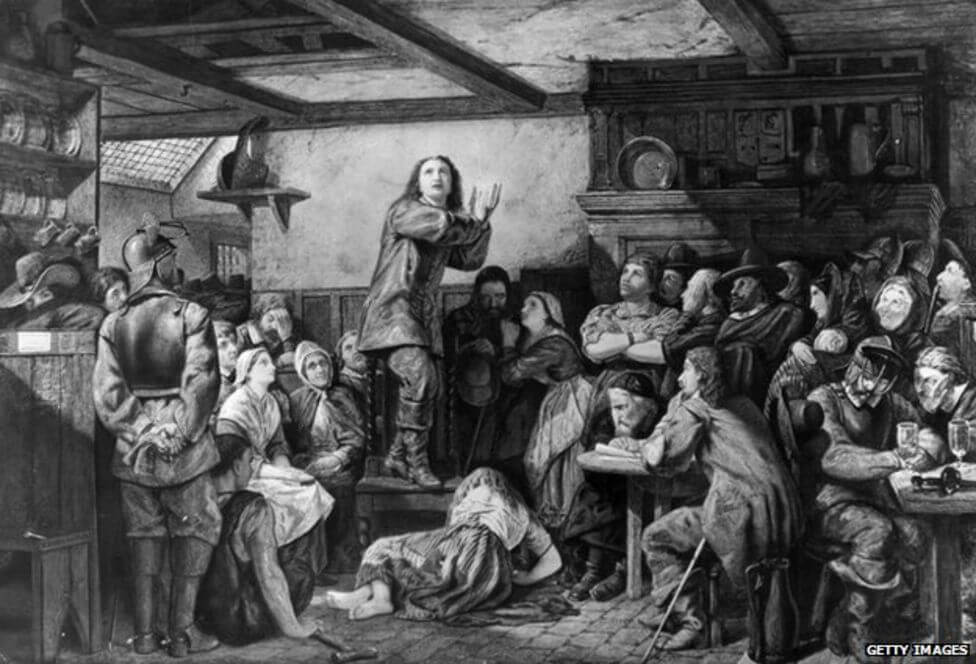
A brief history of the Friends
The Religious society of Friends (Quakers) arose from a movement of Christian renewal that began in England during the seventeenth century. The major leader of this renewal was George Fox, who as a sensitive youth experienced cold formalism and power politics in the church and was repulsed by empty pleasure seeking outside the church. Young Fox studied the Bible and longed for an authentic faith to match its Christian message. This longing remained unfulfilled, even frustrated, by human counselors until he looked beyond them. Then he discovered Christ could speak to him directly as One who could (as phrased in Fox’s Journal) “speak to thy condition,” and he reported that his heart “did leap for joy”.
George Fox found this experience with the living Christ so compelling that he quickly told others about it. To this message people responded eagerly and found they too experienced Christ within. They found that by turning to Christ within they were being freed from the guilt and power of sin without the need of a priest or dry religious rituals. These Christians found a new found freedom and a common religious experience and began to organize.
These Christians first referred to themselves as “publishers of Truth,” “children of the Light,” or “the camp of the Lord.” Gradually they came to prefer the term “Friends” in accordance with Jesus’ words: “You are my friends if you do whatever I command” (John 15:12-15). Their critics dubbed these enthusiastic Christians “Quakers,” a nickname that has become a symbol of integrity rather than a term of derision.
About a century after the movement began, the term “Society of Friends” came into general use. At that time the word “society” conveniently distinguished Friends and other legal but dissenting groups from the established Church of England. In the twentieth century, however, because of confusion about the term “society” and a desire to recover the biblical term for the gathered people of God, “Friends Church” became the preferred term in some yearly meetings, including Northwest Yearly Meeting.
The Friends teaching about the real and sanctifying presence of Christ with His people resulted in strong testimonies of a lived out faith. These included opposition to war, the inclusion of men and women in ministry, the support for religious and political freedom, opposition to slavery and civil bondage, just relationships with aboriginal and minority persons, honesty in business, humane and prison reform, compassionate care of the mentally ill, and aid to war victims and others in distress.
Today these testimonies still hold true for Friends as we seek to not only profess the doctrines of our faith, but also live them out as we seek to be led by Christ and seek his kingdom. We invite others to experience the same joy and peace we have found in the Lord who still speaks to us today.

